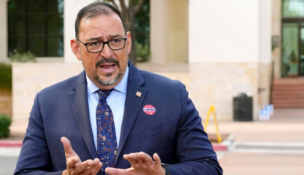Key supporters put brakes on school-choice issues
Arizona Capitol Reports Staff//January 16, 2009//[read_meter]
Key supporters put brakes on school-choice issues
Arizona Capitol Reports Staff//January 16, 2009//[read_meter]
Some lawmakers with a passion for school choice are putting proposed legislation on hold while they await an Arizona Supreme Court ruling that could nix two school-voucher programs.Supporters of the...
No tags for this post.

















